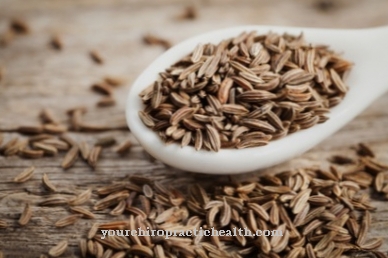Antitussives are used to treat diseases with irritating coughs. They ensure that the cough is stopped, which is why antitussives are also known colloquially as cough suppressants. Coughing is a common symptom of colds or flu-like infections and can be very stressful for the patient.
What are antitussives?

Antitussives are usually a good remedy for dry, irritating coughs. Such a cough can occur with many diseases, it is often such infections that trigger the flu or cold. The cough is a symptom of the disease.
Very dry, dry cough in particular, in which no mucus is removed, often puts a lot of stress on those affected in everyday life. Especially at night, when the cough keeps the patient awake, antitussive drugs are a good choice. They reliably suppress the urge to cough and the patient can calm down. The use of an antitussive drug should also be considered if the dry cough is painful.
Antitussives are available in many different forms and types; in addition to pharmaceutical agents, there are also numerous herbal and homeopathic active ingredients.
Medical application & effect & use
In most cases, antitussives are found in cough syrups. If the patient suffers from a cough, which can be very irritating and dry, a cough syrup with antitussive drugs will provide significant relief.
But antitussives are also available in the form of tablets or drops. Antitussives work in the central nervous system, where they paralyze the center of the cough in the brain stem. They also have a calming effect.
However, many antitussives should not be used for more than a few days, as the risk of addiction with these certain active ingredients is enormously increased. However, there are also antitussives that are not at risk of addiction. For this reason, the instruction leaflet should always be read carefully and all instructions in it should be strictly followed.
In principle, antitussives should only be used if the cough is unproductive. This is the term used to describe a cough that is very irritating but does not remove any mucus at all, a so-called dry cough or dry irritable cough. Most often, such a cough also leads to pain in the bronchi. With other types of cough, antitussives have a counterproductive effect, as the mucus is not removed by the suppressed coughing stimulus, which leads to increased mucus build-up in the lungs and bronchi.
Expectorants should also not be taken in combination with antitussives. Because the mucus that is loosened is not removed.
Herbal, Natural, Homeopathic & Pharmaceutical Antitussives
Antitussives are usually available as juices, but there are also drops or tablets with the same active ingredients. Juices are actually always used with children because they are the easiest to use. Drops can either be taken orally or added to an inhaler as an additive.
Chemical and pharmaceutical antitussives are available, such as Codeine, clobutinol, pentoxyverine, dextromethorphan, oxeladine, pipacetate or theobromine. There are also a number of herbal remedies that also have antitussive properties. Ribwort plantain should be mentioned here, but also thyme, coltsfoot and Icelandic moss.
These plants all have a large proportion of plant mucus, which spreads soothingly in the throat and thus calms the urge to cough. But homeopathic remedies also work well for some people. Especially with smaller children these can be used more safely than the chemical and pharmaceutical antitussives.
In order to find the right homeopathic remedy, you should seek advice from a doctor with additional training, a homeopath or trained specialist staff in the pharmacy. Self-medication, no matter what kind of means, is usually always associated with risks.
You can find your medication here
➔ Medicines against coughs and coldsRisks & side effects
The use of antitussives can cause various side effects and can also be fraught with risks. If the preparation is a sedating antitussive, you should refrain from operating machines and driving. The sedative effect also considerably weakens the reaction time, which increases the risk of accidents.
If the patient has chronic lung disease, certain antitussives must not be taken. In the worst case, there is a risk of respiratory paralysis. One of these active ingredients is e.g. Codeine, which should only be used for very severe coughing disorders anyway. In addition, there is an increased risk of addiction with some antitussives. Some active ingredients that belong to antitussives should therefore only be taken for a very limited period of time. Otherwise it can lead to addiction symptoms.
Most herbal and homeopathic antitussives, on the other hand, have no serious side effects. Nevertheless, the patient information leaflet should always be strictly observed for all medication.






















.jpg)

.jpg)



